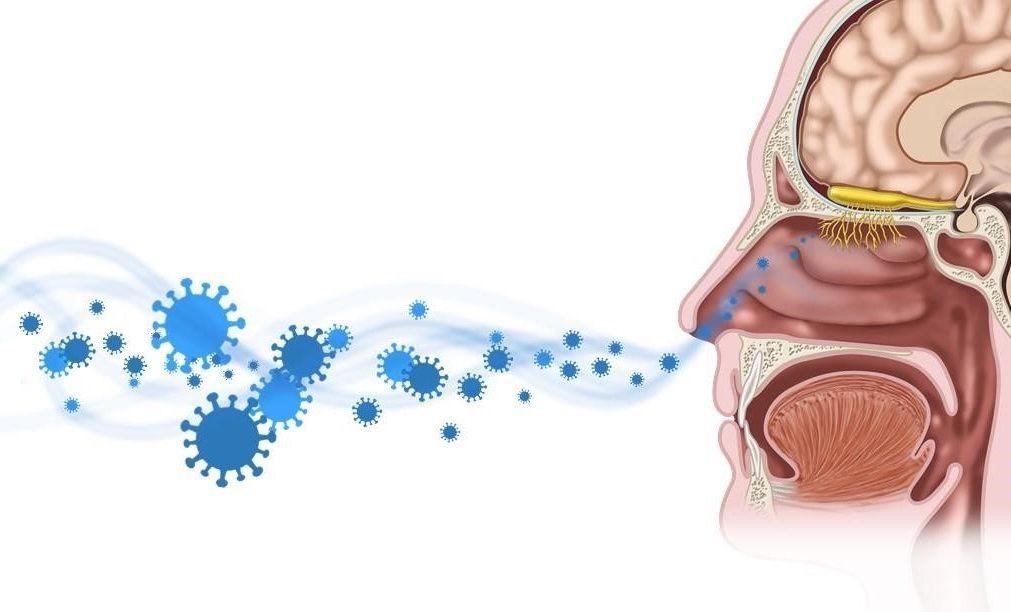Approximately half of all COVID-19 patients experience a loss of smell, but it is unclear why this is the case. In most cases the phenomena is temporary, but about 5% of affected patients suffer from a long-term reduced sense of smell.
Largest study ever in deceased COVID-19 patients
UZ Leuven and AZ Sint-Jan Brugge-Oostende AV doctors took tissue samples via the nose of 70 deceased COVID-19 patients and 15 control patients. They used a technique normally applied for skull base surgery which makes it possible to very precisely take away a sample of the respiratory mucosa, olfactory mucosa and of the olfactory bulb in the brain. Sampling was done with the help of a small camera (endoscope) via the nostrils, leaving the body externally completely intact. The technique was use for the first time for research purposes. The tissue samples were examined with innovative RNA-based techniques and antibody staining.
Prof. dr. Laura Van Gerven, nose, throat and ear doctor at UZ Leuven and principal investigator of the study: “Because of the unique set-up of the trial the quality of our samples was extremely good: they all qualified for analysis, which is exceptional for post-mortem studies. Unfortunately, a large part of patients passed away shortly after their COVID-19 diagnosis. Which is why we were able to catch the virus 'in flagrante delicto', while the virus particles were still replicating in the olfactory mucosa.”
Virus does not infect the olfactory nerve cells
The researchers discovered that the virus reproduces in the ciliated cells in the respiratory mucosa and in the supporting cells of the olfactory mucosa. Little is known about supporting cells in humans, but presumably they play an important role in supporting and feeding the nerve cells with odarant receptors.
Dr. Peter Mombaerts, co-principal investigator: “The infection in the supporting cells probably causes indirectly a deviation in how the olfactory mucosa works, and as such it affects our sense of smell. Our body continuousle produces supporting cells, which could explain the temporary character of the loss of small.”
“The good news is that in none of the cases did we see any virus particles in the nerve cells. It would appear that, via this way, the virus is unable to finds its way into our brain”, professor Van Gerven says.
Also in the smell-processing centre in the brain (olfactory bulb), researchers were unable to detect any virus particles. In a few cases there was some virus present in the cerebral membranes, but the cause and possible consequences are not yet clear.
Cross-border teamwork
Dr. Mona Khan, first author: “Despite the pressure on healthcare and healthcare staff it was remarkable and beautiful to see how a close cooperation was established. The study was real teamwork, with a lot of dedication and trust, across borders.”
Further research
In the meantime, the clinical trial continues. The researchers hope to find out more about the infection of the supporting cells and why loss of smell does not seem to recover (completely) in some patients. In time this can help in the development of medication against loss of smell. Loss of smell is also common in other viral diseases , such as flu. Further research will also focus on samples from patients that died of flu.
Harvesting samples from deceased patients was done by ear, nose and throat doctors at UZ Leuven and at AZ Sint-Jan Brugge-Oostende AV, with cooperation of many doctors and nurses on COVID wards. In addition, the research was done in collaboration with the researchers of the Max Planck Research Unit for Neurogenetics in Frankfurt, Germany.

